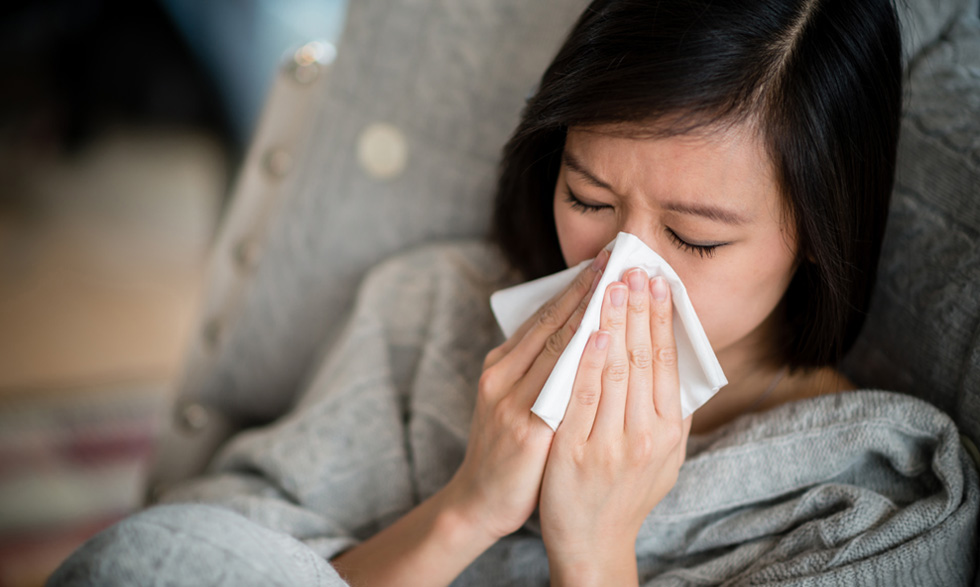
Last updated on July 24th, 2024 at 02:08 pm
Winter and viruses: A dangerous combination
Though a cold, flu, or COVID-19 can strike at any time, you’re more likely to pick up a viral disease in the winter than at other times of the year. The cold, dry air in the winter months provides optimal conditions for the spread of viruses. People are also more likely to gather indoors to avoid the cold weather, creating ideal situations for viruses to spread in large numbers.
Prevention best practices
The best prevention for any kind of virus is to get a vaccine if available. As we’ve seen with breakthrough COVID-19 cases, though, vaccines aren’t perfect. Even if you’re vaccinated, you should take the following steps to avoid contracting a virus this winter.
- Mask up: Even if you’re fully vaccinated, you should wear a mask in public in areas where viruses are spreading quickly.
- Wash your hands frequently: Even if you don’t see any dirt or grime on your hands, that doesn’t mean germs aren’t there. Hand sanitizer is good in a pinch, but washing with soap and water is still the best way to keep clean.
- Disinfect surfaces: Wiping down surfaces you touch a lot with just soap and water does remove some germs, but to make sure you’re reducing germs to a safe level, consider using disinfectants like bleach or antibacterial wipes when cleaning. Some germy items to look out for include counters, doorknobs, faucet and toilet handles, light switches, remotes, and toys.
- Avoid close contact with people who are sick: If someone you’re living with comes down with a viral disease, try to stay in different rooms as much as possible, use separate dishware, and wipe down shared spaces like bathrooms. If you have to be in the same room, try to be at least six feet apart and consider wearing a mask. Air purifiers are great if you have one, and, if the weather’s warm enough, a cracked window can help new air flow into the room, lowering the risk of infection.
- Try not to touch your eyes, nose, and mouth: Though the virus that causes COVID-19 has been shown to mainly spread through the air, many viruses spread when someone touches a surface with the virus on it and then touches their eyes, nose, or mouth, where the virus can enter the body.
Steps to recover quickly from an illness
Should you come down with COVID-19, the flu, or another respiratory virus, here are some tips on how to help care for yourself.
- Stay home, and stay away from those you live with as much as possible
- Get tested – knowing what’s causing the infection can help inform treatment decisions
- Rest, drink lots of liquids, and take pain relievers as needed for aches, pains, and fever
- Speak with your doctor. Prescription antiviral drugs might be an option if you test positive for the flu. If you’ve tested positive for COVID-19, ask your doctor if you’re eligible for an FDA-authorized or -approved COVID-19 antiviral medication
- Older individuals and those with existing medical conditions who have symptoms should call their doctor if they test positive for COVID-19
- If symptoms get much worse, consider going to the hospital
- Try using a humidifier or steam to relieve congestion
- Gargling with salt water can help get rid of mucus that collects at the back of the throat
- Cough drops and hard candy can help ease a cough or sore throat
Symptom breakdown
COVID-19
- Fever/feeling feverish: Yes
- Cough: Yes
- Shortness of breath: Yes
- Fatigue: Yes
- Sore throat: Yes
- Runny or stuffy nose: Yes
- Muscle pain or body aches: Yes
- Headache: Yes
- Vomiting and diarrhea: Yes
- Change in or loss of taste or smell: Yes
- Sneezing: Rarely
Flu
- Fever/feeling feverish: Yes
- Cough: Yes
- Shortness of breath: Yes
- Fatigue: Yes
- Sore throat: Yes
- Runny or stuffy nose: Yes
- Muscle pain or body aches: Yes
- Headache: Yes
- Vomiting and diarrhea: Sometimes
- Change in or loss of taste or smell: Sometimes
- Sneezing: Rarely
Cold
- Fever/feeling feverish: Sometimes
- Cough: Yes
- Shortness of breath: Yes
- Fatigue: Sometimes
- Sore throat: Yes
- Runny or stuffy nose: Yes
- Muscle pain or body aches: Sometimes
- Headache: Yes
- Vomiting and diarrhea: Never
- Change in or loss of taste or smell: Sometimes with a stuffy nose
- Sneezing: Sometimes
Vaccine news
Vaccines not only provide protection for yourself but help prevent the spread of disease to vulnerable populations. The FDA-authorized and approved COVID-19 vaccines are safe, highly effective at preventing hospitalization and death, free, and widely available. The Centers for Disease Control and Prevention advises everyone age 5 and older to get the first two COVID-19 vaccine shots, and everyone age twelve and older to get a booster shot. People can find a local COVID-19 vaccination site by going to vaccines.gov or texting their zip code to GETVAX (438829) or VACUNA (822862).
Today’s flu vaccines are developed to prevent what scientists believe will be the most widespread flu strain each winter. In June 2021, the NIH launched a clinical trial of a universal flu vaccine developed by scientists from the National Institute of Allergy and Infectious Diseases. If it works, the vaccine would provide long-lasting protection against multiple flu virus strains and could one day get rid of the need to get vaccinated every year. Until then, be sure to get your flu shot every year as well as the COVID-19 vaccine and any boosters.
